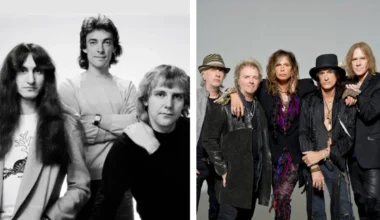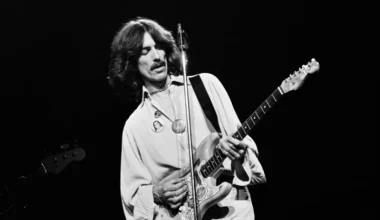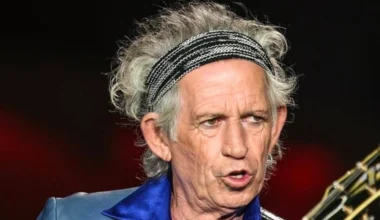The Beatles were leaving at the end of the 1960s, leaving the rock ‘n’ roll throne open for grabs. Although The Who and The Rolling Stones were well-known rivals, fans grew more obsessed with heavier rock musicians as trends changed. Around this time, three bands that were essential to the emergence of heavy metal rose to prominence in the lush pastures of Britain. Deep Purple, Black Sabbath, and Led Zeppelin all played pivotal roles in shaping the genre’s sound and style.
Known as the Unholy Trinity, these three British groups contributed numerous timeless guitar riffs and a metallic touch to modern rock trends. Jimmy Page’s “Whole Lotta Love,” Ritchie Blackmore’s “Smoke on the Water,” and Tony Iommi’s “Paranoid” all had early fans headbanging. These bands not only had incredible riffs but also heavily depended on thunderous percussion.
In the drumming world, Ian Paice and Bill Ward are highly esteemed, but very few rock percussionists are praised to the same extent as John Bonham. When you combine his skill with Robert Plant’s vocal virtuosity, John Paul Jones‘ command of the bass, and Mr. Page’s guitar prowess, you have one incredible rock band.
Among the Unholy Trinity bands, Led Zeppelin emerged as the most well-liked one globally. The group retained a heavy metal element in their sound. However, progressive and intricate songs like “Four Sticks” and “Stairway to Heaven” helped them become more and more identified with the prog-rock wave.
As Led Zeppelin transformed into a massive stadium tour, Bonham struggled more and more with his celebrity and resorted to drinking during his dark moments. In a 2016 interview with Classic Rock, Deep Purple’s Jack Blackmore discussed his friendship with Bonham. He recalled the latter’s propensity to start arguments when intoxicated. He started, “I used to be friendly with Bonzo from Led Zeppelin.”
The guitarist for Deep Purple continued, recalling how a friendly drink had once turned into an argument. “He’d be up and drunk or depressed, and he’d be staring at the table,” Blackmore recalled. “We’d be sitting drinking in the Rainbow [bar in LA].” The guitarist was then ridiculed by Bonham for the simplicity of his “Smoke on the Water” riff. Blackmore responded by accusing Led Zeppelin of ripping off Jimi Hendrix’s rendition of “Hey Joe” with the “Whole Lotta Love” groove.
Fortunately, the two musicians made up in the restroom, so there was no lasting animosity. “As we both start to leave, he asks, ‘Rich, did you mean all that?'” “No, not really, I was just having a go at you,” I replied, Blackmore continued. “Oh,” he says. I also didn’t mean it. There is space for everyone at the top. We thus continued to urinate before going downstairs and resuming our drinking.
On a different occasion, Blackmore recalled that although Bonham was proud to be one of the greatest drummers of all time in one of the greatest rock bands, he suffered from fame. John Bonham would consistently announce to Zeppelin, “I’m quitting the band. I am unable to return to America. That’s not something I can do.
After exceeding all of his expectations in terms of success by the middle of the 1970s, Bonham desired a change of pace. It was a demanding experience to travel the world, particularly if you had two kids at home. But the manager of the band always came up with enticing offers to get the drummer back in the fold. “Peter Grant would say, “Hey, come to the garage,” in the past. Let me present you with something. “What?” he would ask. Blackmore went on, “They’d go to his garage, and there’s a new Lamborghini, just what Bonzo wanted.” That’s how he continued to visit.
Unfortunately, Bingham’s mental health remained unstable due to his excess and celebrity. Blackmore said, “There were a few times when he ended up crying because he wanted to go home.” “He missed his wife, didn’t want to be in a big band, and didn’t want to be in America.” He desired to be playing solo in a small band in Birmingham. All of that fame didn’t matter to him.
John Bonham tragically died in September 1980 after a heavy drinking session due to pulmonary asphyxiation. At the age of 32, he joined the increasing number of rock stars who experienced burnout while touring. This burnout was due to the overwhelming pressure that their profession seemed to impose.







